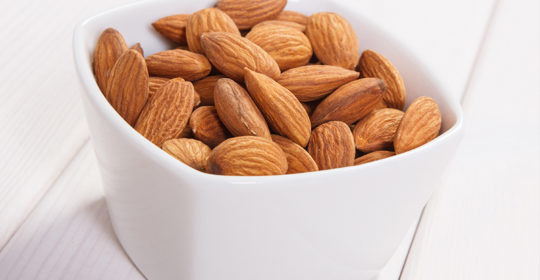
Beginners Guide to Healthy Eating
A healthy diet can nourish your body, mind and soul so you can perform better in all aspects of your life. Specific foods and nutrients can strengthen your body, give you more energy, sharpen your mind, reduce your risk of disease, and boost your mood and well-being. Read on below for some tips as well as mistakes to avoid on your journey to healthy eating.
Simple Advice for Beginners to Healthy Eating
- Build a healthy and balanced diet: Create a healthy and balanced diet that consists of protein, fat, fiber, carbohydrates, vitamins and minerals. Choose the healthiest options from each food category.
- Eat whole real foods: Eat natural, unprocessed foods such as fresh fruits and vegetables, nuts, beans and whole grains, which are nutrient-dense and are at their healthiest state.
- Enjoy a colorful variety of fruits and vegetables: Eat a colorful variety of fruits and vegetables so you can benefit from a wide array of vitamins, minerals and nutrients. Go for apples, oranges, blueberries, strawberries, carrots, red and yellow bell peppers, olives, leafy greens – the more colorful, the better.
- Go for lean protein: Go for sources of lean protein such as lean meats, skinless chicken, eggs, beans and lentils, soy foods, dairy, nuts, seeds and fish.
- Eat healthy fats: Eat healthy fats from sources such as avocados, nuts, seeds and fatty fish.
- Cook with healthy oils: Use healthy oils such as virgin coconut oil or extra virgin olive oil.
- Practice healthy snacking: Instead of reaching for processed snack foods, try snacking on fresh fruits such as apples, bananas and strawberries. You can also try carrot sticks, cucumber slices or cherry tomatoes. Or munch on a handful of nuts such as pistachios, almonds and walnuts.
- Avoid highly processed foods: Avoid or cut back on highly processed foods such as prepared meats, chips and candy. Highly processed foods contain harmful ingredients such as trans fats, high fructose corn syrup, and high concentrations of sugars and salts, which pose health risks.
- Avoid sugar-sweetened beverages: Avoid soda and sugary drinks. Opt for water instead. If you would like to drink something with more flavors, you can go for other healthier choices such as tea, milk or freshly squeezed fruit juices.
- Avoid processed low-fat products: People often think that low-fat products are healthy alternatives, but processed low-fat products usually contain a lot of sugar to improve their taste.
- Avoid an all or nothing mindset: When you are transitioning to a healthier diet, you don’t need to have an all or nothing mindset. Your diet doesn’t have to be perfect and you don’t need to completely give up and eliminate the foods you enjoy. You don’t have to change everything in your diet all at once. This will just lead to you cheating, binge eating or giving up on your new healthy eating plan.
You can still enjoy your favorites such as cake or chocolate – just limit your intake and enjoy them occasionally in moderate amounts. Eating a healthy diet can have a huge impact on your physical, mental and emotional well-being. Start with small steps and see how healthy eating can greatly improve your quality of life.
Leave a reply →